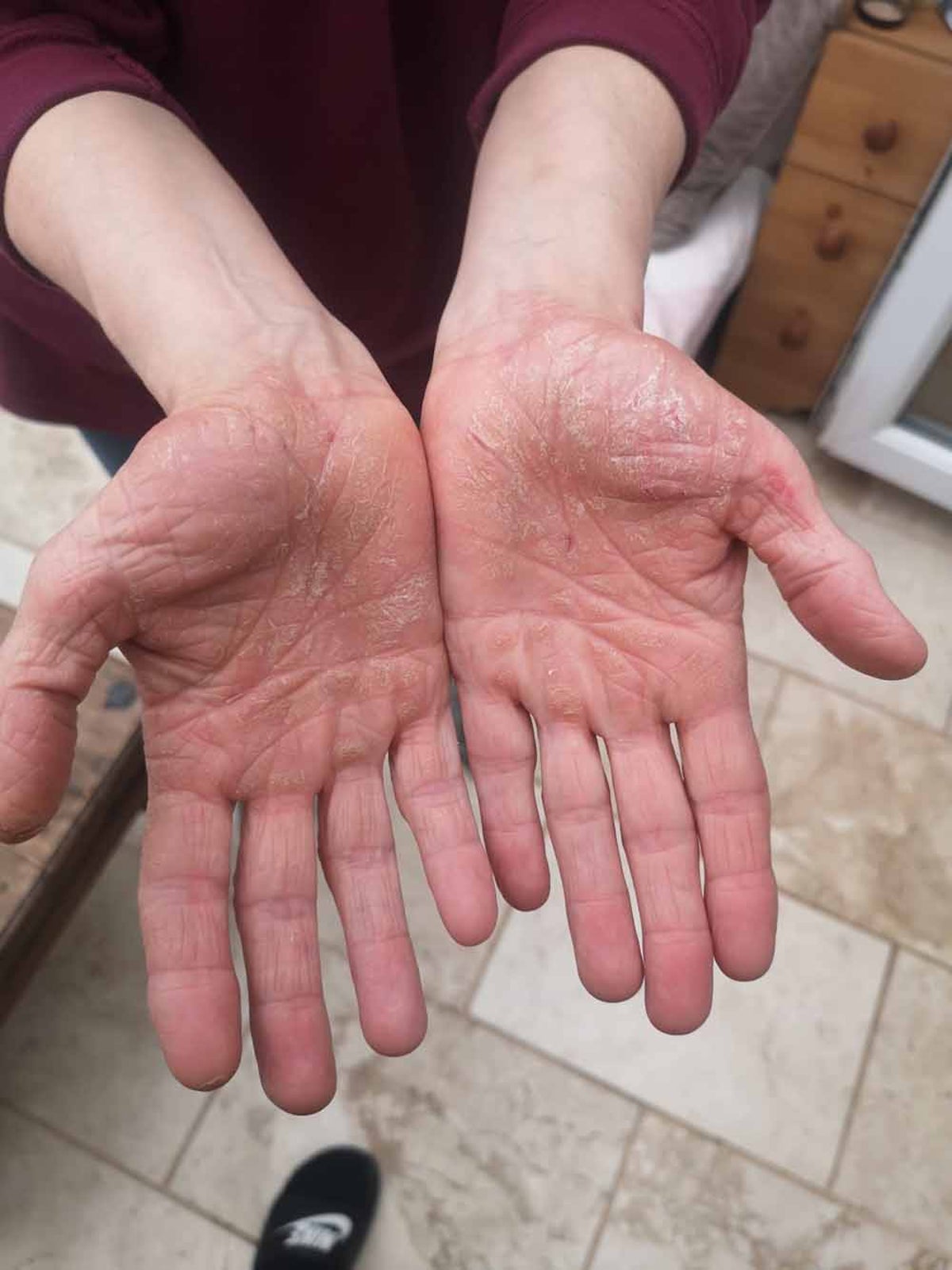
Bile duct cancer is a rare type of cancer that develops in the tubes that connect the liver and gallbladder to the small bowel.
Between 25 and 30 per cent people with the cancer survive for 1 year or more after they are diagnosed, while 15 per cent survive for 5 years or more, according to Cancer Research UK.
Some 1,000 new cases are diagnosed in the UK each year, the NHS says.
Bile duct cancer does not usually cause signs or symptoms until later in the course of the disease, but sometimes symptoms can appear sooner and lead to an early diagnosis. If the cancer is diagnosed at an early stage, treatment might work better.
The Independent recently reported on the case of Maria Barry, a mother-of-three who lives in north west London, who was diagnosed with the cancer after she started suffering from itchy and cracked hands during the first Covid lockdown in March 2020.
The 58-year-old initially thought it was a reaction to a new cleaning product she was using, but in April 2022, discovered she had bile duct cancer. Without treatment, she now has just three to six months to live.
Symptoms
According to the NHS website, symptoms of bile duct cancer can include:
- Your skin or the whites of your eyes turn yellow (jaundice), you may also have itchy skin, darker pee and paler poo than usual
- Loss of appetite or losing weight without trying to
- Feeling generally unwell
- Feeling tired or having no energy
- A high temperature, or you feel hot or shivery
Other symptoms can affect your stomach, such as:
- Feeling or being sick
- Pain in your stomach
The NHS says that bile duct cancer may not have any symptoms, or they can be hard to spot.
When bile duct cancer does cause symptoms, it's usually because a bile duct is blocked. Symptoms tend to depend on whether the cancer is in ducts inside the liver (intrahepatic) or in ducts outside the liver (extrahepatic).
Treatment
This depends on where the cancer is, how big it is, whether it has spread, and your general health. The main treatments for bile duct cancer are surgery and chemotherapy.
Most people with the cancer are at an advanced stage by the time they are diagnosed. This means that the cancer has spread outside the bile ducts. Treatment for advanced bile duct cancer is usually chemotherapy.
Bile duct cancer can block the bile ducts and cause symptoms such as yellowing of the skin and whites of the eyes (jaundice). Your doctor usually puts in a tube called a stent to relieve the blockage and allow bile to flow into the bowel again.







